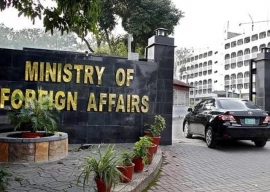
The administration had imposed Section 144 on April 6 ahead of planned strikes across the region. The Awami Action Committee (ACC) has called for a complete shutter down and wheel-jam strike from April 15 onwards to pressurise the government into reducing the price of wheat. To mount further pressure, the AAC has also threatened to block Karakoram Highway till its demands are met.
On April 11, the G-B chapter of the International Human Rights Observer (IHRO) filed a petition in court challenging the administration’s decision. On Monday, Justice Sahib Khan and Justice Wazir Shakeel suspended the government’s orders stating the restriction was a violation of human rights and by law the administration cannot extend Section 144 for more than a week.
The petitioner, IHRO Coordinator Muhammad Farooq, told The Express Tribune that the restriction deprives people of their right to protest and thus the court dismissed the orders.
However, by late Monday afternoon the administration announced the imposition of the section again. Loudspeakers mounted on an official vehicle made the announcement across
Gilgit city.
The official notice issued by the home secretary read, “Section 144 has been imposed and under the law the congregation of five or more people in one place is prohibited.” The chief minister’s office also confirmed the report.
Following this, the G-B Supreme Appellate Court Bar Association and G-B High Court Bar Association announced a boycott of court proceedings on April 15 (today) in all lower and apex courts as a show of solidarity with the AAC. Furthermore, the bar associations have assured the committee organisers of providing legal assistance to them as and when required.
On April 6, the Gilgit administration had imposed Section 144 in Gilgit for three months. The restriction was meant to foil protest demonstrations planned by AAC to bring down wheat prices which have increased from Rs520 per 40kg bag to Rs850 in just one year.
The AAC is an alliance of around 23 religious, nationalist and political groups formed earlier this year with the main objective of lowering wheat prices.
Published in The Express Tribune, April 15th, 2014.



































COMMENTS
Comments are moderated and generally will be posted if they are on-topic and not abusive.
For more information, please see our Comments FAQ